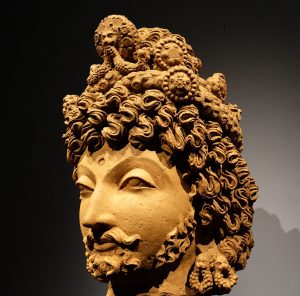Pakistan’s government this week organized a “Gandhara Symposium” in an effort to create an environment that welcomes Buddhist tourists, boosts tourism and diversifies Pakistan’s identity. Buddhist monks and delegates from different countries participated in the symposium and discussed the heritage of Gandhara, a region in present-day Pakistan that was the center of a rich Buddhist civilization many centuries ago. The Gandhara civilization flourished in what is now northwestern Pakistan around 1000 BC and lasted for over 1000 years. It covered vast parts of Khyber Pakhtunkhwa and northern Punjab.
As part of the country’s commitment to promoting Gandhara tourism, a Task Force led by the Prime Minister has been established. This task force is dedicated to preserving and promoting Gandhara’s cultural treasures while ensuring that they are accessible to tourists from both home and abroad. By hosting events like the “Gandhara Symposium” and establishing dedicated initiatives such as the Task Force on Gandhara Tourism, Pakistan is demonstrating its dedication to preserving and showcasing this invaluable part of its history.
Promoting religious tourism linked to Buddhism in Pakistan is indeed an ambitious idea, considering the historical context of Islamization and radicalization in the country. Pakistan’s rich history and diverse cultural identities have often been overshadowed by an overwhelming emphasis on Islam. This injection of religion into every aspect of society has limited the space for celebrating the region’s cultural diversity. The historical blunders of the country’s leaders in whitewashing Pakistan’s diverse history with a singular Islamic identity have further exacerbated this issue.
Efforts to promote cultural diversity in the past have been derailed by right-wing elements, who claim to protect Pakistan’s Islamic identity even as they advance their own political interests.
However, it is crucial for Pakistan to recognize that true progress and growth as a regional power can only be achieved by opening itself up to the world. By highlighting the rich cultural heritage and archaeological sites associated with Buddhism, Pakistan can attract thousands of tourists. With an estimated 535 million people practicing Buddhism worldwide, and a majority of them residing in Asia, Pakistan can tap into this market and benefit from the economic opportunities it presents.
Despite being located in close proximity to countries where Buddhism thrives, Pakistan has remained relatively closed off to the Buddhist world. This has resulted in missed opportunities for the country both economically and culturally. Pakistan should reevaluate its priorities and shift focus from excessive Islamization towards exploring other potential ideas that can help strengthen the state.
For instance, investing in tourism infrastructure, promoting historical sites related to Buddhism, organizing cultural events, and establishing partnerships with neighboring countries are just some of the steps that can be taken to unlock Pakistan’s tourism potential. Collaborations with international organizations specializing in heritage preservation would also enhance the credibility of these initiatives.
It is important for Pakistan to seize this opportunity now and diversify its offerings beyond religious tourism. For instance, Pakistan has an opportunity to reclaim the narrative by showcasing a side that goes beyond political conflicts or negative stereotypes. By promoting tourism that incorporates its ancient cultural roots, Pakistan can foster positive engagement with the global community while celebrating its own history at the same time.
The Pakistani leadership needs to acknowledge that cultural richness does not undermine statehood but enhances it. It is time for Pakistan to break free from the constraints imposed by an excessive focus on Islam and instead create an environment where all identities, histories, and cultures are respected and celebrated.
Pakistan’s leaders should recognize the significance of preserving and showcasing the country’s diverse cultural history, regardless of political changes. In the past, valuable initiatives aimed at promoting Pakistan’s cultural heritage have often faded away simply because they were associated with individuals who were no longer in power.
For Pakistan to truly thrive and progress, it is imperative that policies regarding cultural preservation and promotion are not subject to the whims of transient political interests. The continuity of such initiatives should be prioritized over short-term pressures from any particular group, including those with vested interests. Pakistani policymakers need to commit themselves to sustaining these initiatives for the betterment of their nation’s future.

































